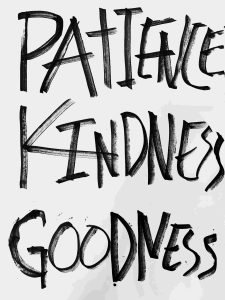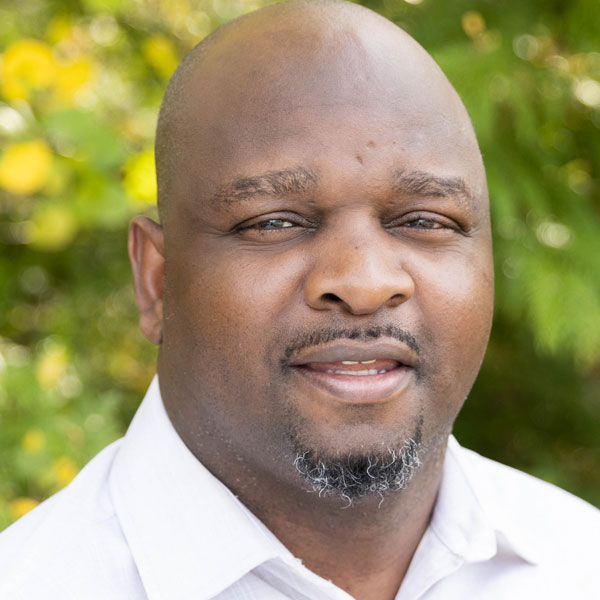It would be impossible to get through life without ever once experiencing abandonment trauma or rejection. This universal experience is a tool that shapes us for better or worse, usually for worse. Sometimes we experience abandonment to such a degree that we are forever affected.
Our first step to healing from abandonment trauma is to take some time to self-reflect and notice how abandonment trauma is affecting our relationships. From there, we can begin addressing these issues individually to free ourselves from the fear of further rejection.
Peeling Back the Layers
When we get a physical injury, we tend to protect the part of us that hurts instinctively. We might shy away from treatment because of the pain it causes, even though we understand that things might have to feel worse before they feel better. Emotional trauma is exactly like this, too.
 When we experience something painful or dangerous in childhood, such as abuse, neglect, or abandonment, our young brains instinctively shield us from the brunt of the pain. We tend to shy away from situations that would cause further harm.
When we experience something painful or dangerous in childhood, such as abuse, neglect, or abandonment, our young brains instinctively shield us from the brunt of the pain. We tend to shy away from situations that would cause further harm.
For example, if we got into physical danger because no adult was supervising what we were doing, we might learn to distrust adults because they seem not to care about us. From that one experience, we might learn to be self-sufficient and independent, engaging in dangerous activities secretly because we became convinced that adults didn’t care what we were doing.
As we grow up, we carry childhood experiences within, often buried deeply in our subconscious. The neglected child learned that there would be no adult supervision to keep him from harm, and as an adult, he believes that no one truly cares what harm might befall him. He has become self-sufficient and independent to the point of being distrustful and emotionally unavailable.
We hold onto the instincts that protected us from harm as children. These instincts become the core beliefs we have about ourselves and others. We act instinctively with caution in the most dangerous areas. In this case, it is trusting people.
We might not be able to pinpoint the events since another function of a child’s brain is to block out the worst memories. Sometimes we have to start from the present and look at how we navigate relationships now before we can begin the healing process.
Common Ways Abandonment Trauma Affects Relationships
Self-Abandonment
If we experienced neglect or abandonment as a child, we might grow up believing that we weren’t worth someone’s time or effort to care for. This might manifest as a different kind of abandonment in our adult lives: self-abandonment. Self-abandonment looks like making no attempts to care for oneself, physically or emotionally.
We avoid any attempts at intimacy because deep down, we don’t believe we are worth anyone’s time to get to know us. Likewise, we also believe we have nothing to offer others. Of course, this is not true, but it can take a lot of therapy and someone consistently showing up in our lives to dispel this belief.
Serial Romantic Relationships
Some people always seem to be in a new relationship. They might not term these connections as relationships, but the point is that they are never unattached for long. Some go as far as to forge a connection with someone new while they are already with someone else, knowing that an end is coming to their current relationship. They work hard to ensure they are never alone, even for one moment. Singleness to them equates to a life of no meaning.
This kind of behavior points to a fear of being alone and is a clear indicator of abandonment trauma. Their ideal might be to enter into a codependent relationship, where they are locked in with someone who has similar fears. This behavior perpetuates fears and insecurity, keeping them locked into survival mode, never learning, growing, or risking anything.
Ending Relationships Prematurely
 When we operate out of abandonment trauma, we can’t help but mistrust people. We live in constant fear of being left. Sometimes just the idea of being dumped or walked away from is painful enough, even if it’s unlikely that it will actually happen. Living with a constant fear of rejection is unsustainable. Deep down, we know this.
When we operate out of abandonment trauma, we can’t help but mistrust people. We live in constant fear of being left. Sometimes just the idea of being dumped or walked away from is painful enough, even if it’s unlikely that it will actually happen. Living with a constant fear of rejection is unsustainable. Deep down, we know this.
Unfortunately, our instinct is often to be the one who walks away. Many friends and lovers have been blindsided by our self-protective tendency to end the connection. Our mentality might be, “They can’t hurt me if I never give them a chance to.” This also means that we never develop lasting intimacy with anyone, leading us to feel lonely and longing for intimacy.
Sabotaging Relationships as a Means of Testing Their Connection
Our brains protect us from the pain of abandonment in childhood, even though we can’t comprehend it. As a result, we tend to fill in the gaps for ourselves as adults, coming to whatever conclusion makes the most sense. For example, we might have come to believe that our father walked out on us in childhood because we were a naughty child. We have filled in a gap of understanding with a belief that isn’t strictly true, but it helps us find closure.
It doesn’t end there, though. That belief has not healed our abandonment wound, and it might have caused us more pain. We might expect that others will leave us too, but we don’t know when it will happen or for what reason. Like a child who throws a tantrum, we might begin acting out as a way of testing the bond of the relationship. If it breaks, even as a result of our behavior, that will only confirm our fears.
Feeling Resentful When High Expectations Are Not Met
One of the ways that we sabotage our relationships is to place impossibly high standards on our partners and friends. We might not be inclined to act out of character to test the bond, but we might set the bar so high that our partner cannot live up to our expectations.
If they end up withdrawing to avoid being hurt, we can point to them and say, “I knew that would happen,” as we blame them for leaving us. Having childhood trauma does not mean we can escape accountability; it is accountability that helps us to grow and heal the wounds from our past.
Going Back to Go Forward
 You may have heard the term regression. It is what happens when we stay in the painful experience of the trauma. Rather than get stuck in one spot, though, we tend to go backward. Our behavior might become childlike and “brattish” as we attempt to keep others away from us, and away from the tender spot in our heart that still needs healing.
You may have heard the term regression. It is what happens when we stay in the painful experience of the trauma. Rather than get stuck in one spot, though, we tend to go backward. Our behavior might become childlike and “brattish” as we attempt to keep others away from us, and away from the tender spot in our heart that still needs healing.
Ironically, going backward is how we heal, too. Unlike regressive behavior, though, we look back to our childhood and the experiences we had to find out where we got the beliefs we have today. Remember that it is our beliefs that cause our actions.
To change our actions, we must consider our beliefs and test to see if they align with reality or not. If we have always believed that we are unlovable, we might have to consider how others see us. We need to observe their words and actions to see if they align with this idea.
In the same way that we hate going to the dentist even though we are in pain, we instinctively shy away from people who poke too close to the painful areas of our soul. Healing from childhood trauma is often a messy, painful process that requires trust and vulnerability. It’s not easy, but it is possible.
If you would like to begin your healing journey, contact our offices today so we can connect you with a professional counselor who can help you unpack whatever topic you feel comfortable dealing with. Together with them, you can take the first steps to living without fear of emotional pain.
“Patience. Kindness. Goodness.”, Courtesy of Caleb Gregory, Unsplash.com, CC0 License; “Rock Stack”, Courtesy of Ahmed, Unsplash.com, Unsplash+ License; “Black Heart”, Courtesy of Kelly Sikkema, Unsplash.com, CC0 License;”Love”, Courtesy of Mandy von Stahl, Unsplash.com, CC0 Licens
-
Meluleki Ncube: Author
As a Licensed Marriage and Family Therapist (LMFT), I have extensive experience working with a wide range of clients from diverse backgrounds, including teenagers, adult individuals, parents, and couples. As your therapist I promise to show up and li...
-
Kate Motaung: Curator
Kate Motaung is the Senior Writer, Editor, and Content Manager for a multi-state company. She is the author of several books including Letters to Grief, 101 Prayers for Comfort in Difficult Times, and A Place to Land: A Story of Longing and Belonging...
DISCLAIMER: THIS ARTICLE DOES NOT PROVIDE MEDICAL ADVICE
Articles are intended for informational purposes only and do not constitute medical advice; the content is not intended to be a substitute for professional medical advice, diagnosis, or treatment. All opinions expressed by authors and quoted sources are their own and do not necessarily reflect the opinions of the editors, publishers or editorial boards of Stone Oak Christian Counseling. This website does not recommend or endorse any specific tests, physicians, products, procedures, opinions, or other information that may be mentioned on the Site. Reliance on any information provided by this website is solely at your own risk.







